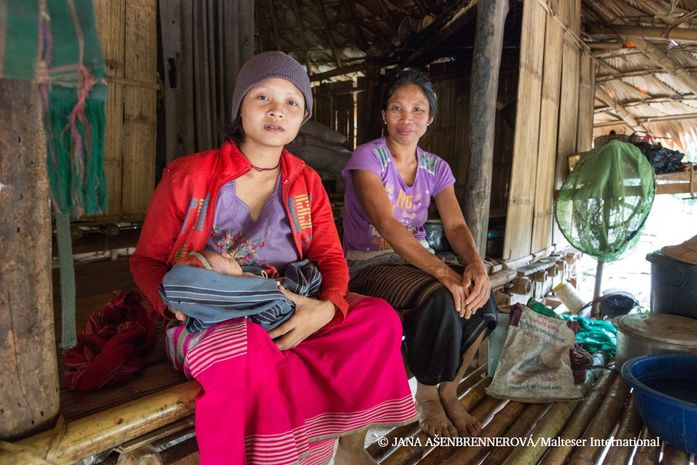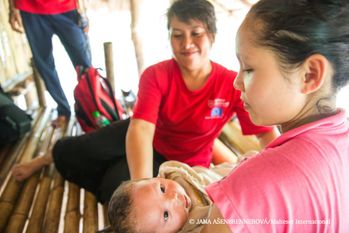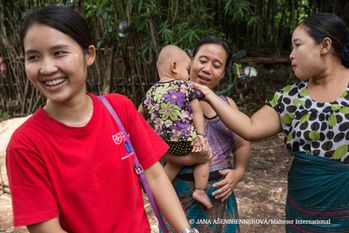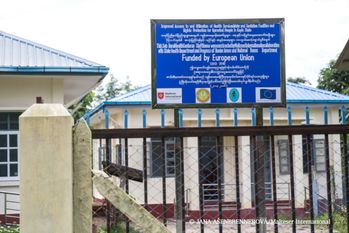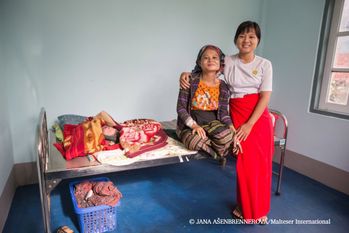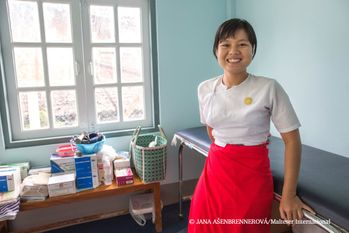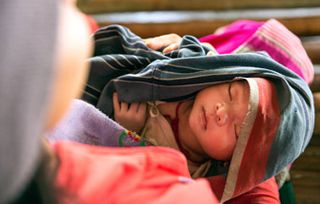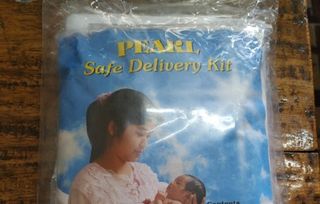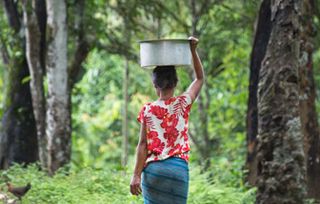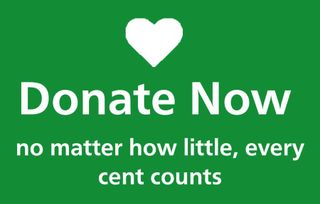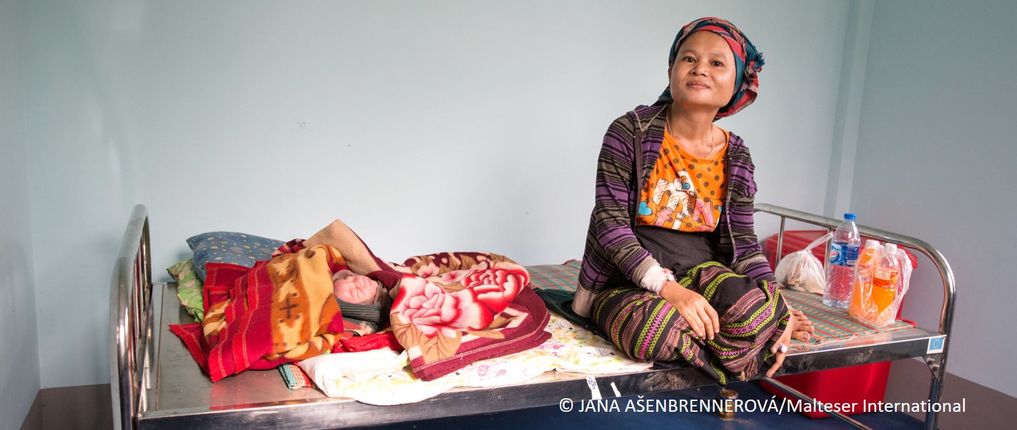
SDG 3 in Myanmar: “Good health and well-being for all”
Goal 3 of the Sustainable Development Goals (SDGs) aspires to “ensure healthy lives and promote well-being for all at all ages.” Through our numerous projects worldwide, Malteser International is making every effort to help reach these objectives.
In Myanmar, for instance, we are building health networks in the most remote areas of the country to improve healthcare, especially for pregnant women, mothers, and children.
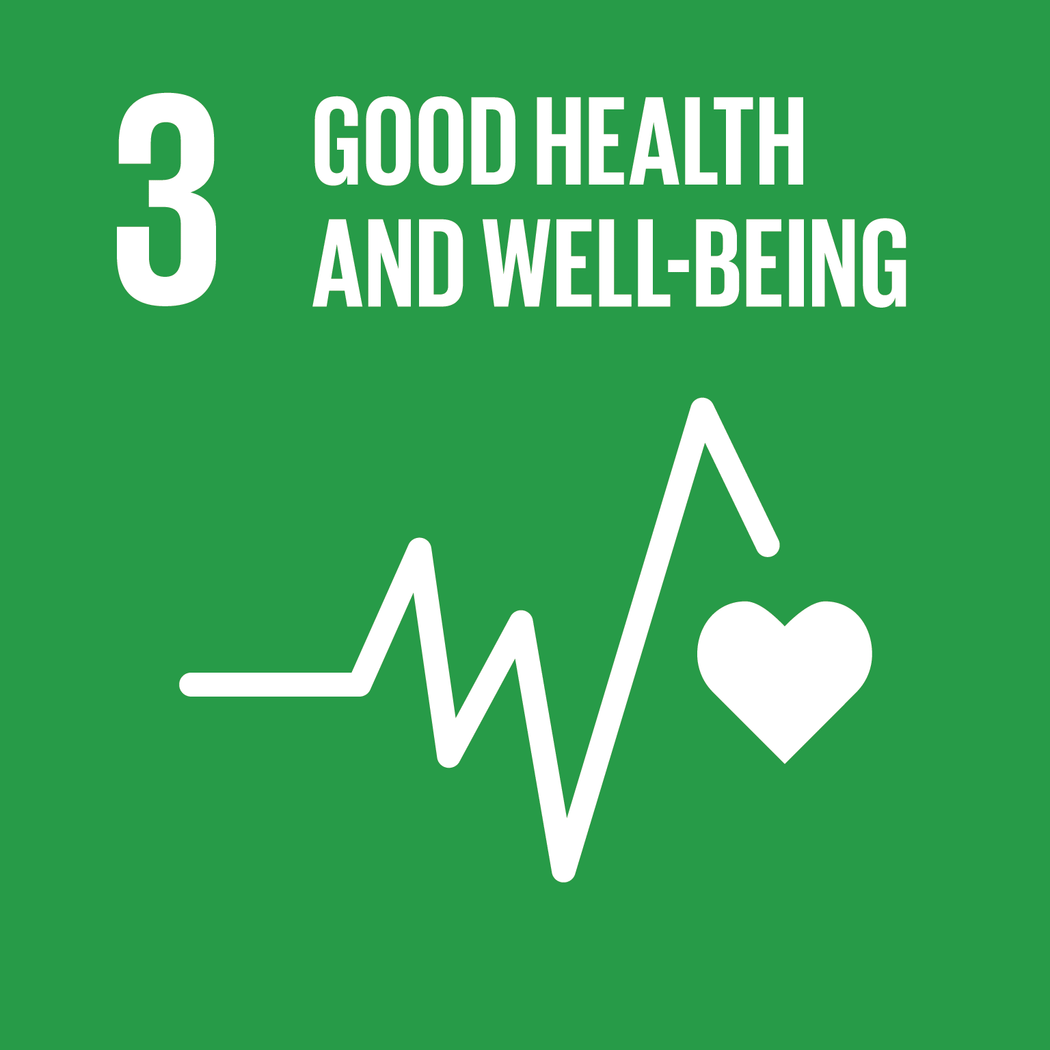
Ending preventable maternal and neonatal mortality remains a crucial indicator under Goal 3 of the SDGs. Although progress has been made in many places, many women around the world continue to die needlessly from pregnancy-related complications and health conditions aggravated by childbirth. In 2015, while about 21 maternal deaths and 786 neonatal deaths were recorded in Spain, 1,700 women in Myanmar died while giving birth and 23,869 newborns did not survive their first month.

Poor health infrastructure, poverty and lack of hygiene
“The majority of these deaths are preventable,” says Maren Paech, Program Manager for Myanmar at Malteser International. “Despite efforts by the Myanmar Ministry of Health to improve access to healthcare for everyone in the country, many remote regions face difficulty accessing adequate medical services. Oftentimes, people in need of medical care walk several hours to reach a health facility, many of which are inaccessible during monsoon season.” While the direct causes of maternal deaths stem from obstetric complications of pregnancy, socioeconomic factors like poverty and illiteracy are also inextricably linked to poor health. Most people in Myanmar’s rural regions live below the poverty line. A significant number of women cannot afford a medical examination and illiteracy rates are very high in these regions. With 135 officially recognized ethnic groups in Myanmar, language and cultural barriers additionally complicate access to healthcare. As a consequence, there is little knowledge of pregnancy risks and preventive practices in villages. Women in remote areas mostly rely on traditional birth attendants (TBAs) for help during childbirth. However, despite the long years of experience of many TBAs, their lack of knowledge regarding important hygiene measures and danger signs in pregnancy and childbirth which require referral as well as their overre-liance on traditional practices can sometimes be risky to women.
Primary healthcare services
“Our maternal-child programs in Myanmar include action plans on the approach to Primary Healthcare for three regions," says Paech. “Together with the Ministry of Health and Ethnic Health Organizations, we are helping to bolster the country‘s capacity to combat the main causes of maternal, child and infant mortality: building and equipping health centers, providing support in the training and further education of health workers as well as in vaccination campaigns.” At the grassroots, we are training community health workers and local auxiliary mid-wives, who form an integral part of the village health system. They, in turn, share their knowledge of good hygiene practices and infant nutrition with villagers, serving as an essential intermediary between the communities and the public health service providers. We have also supported the establishment of village health committees and mother-support groups that can initiate a referral mechanism in the event of medical complications. The referral mechanism has helped prevent life-threatening situations and saved the lives of countless women and children. Traditional birth attendants continue to play an important role in childbirth. We also train them to give the necessary supervision, care, and advice to women during pregnancy, labor, and the postpartum period. These Trained TBAs (TTBA) are also able to use our “Clean Delivery Kits”, which contain essential materials to ensure a safe delivery in cases of emergency.
How your giving helps pregnant women in Myanmar
Active participation and functioning networks
"We have always seen the people we serve as experts of their lives. We make sure to proactively listen to their perspectives and support them to make decisions about what they need to improve their lives,” says Paech. The increased awareness of community health issues and active participation lead to a strengthened healthcare system at the village and township level. It is also important that existing cultural structures are not undermined. Traditional birth attendants (TBAs) still retain their role as important confidants for pregnant women and young mothers. This time, however, they are better trained to support public auxiliary midwives who are responsible for maternal and infant health in the villages. “In Kayin State, our strategy of community participation has enabled people to play an active role in shaping our healthcare programs and their future,” says Paech. Our activities in the region have demonstrably had positive impact. In 2018, 32 percent of surveyed mothers attended the recommended two antenatal and one post-natal care sessions, compared to 15.7 percent in 2014. Also, 25 percent of women had trained health personnel attend their deliveries in 2018, when the project started in 2014, the figure stood at a mere 7.3 percent. “These findings have strengthened our commitment,” says Paech. “Reaching the economic, environmental and social goals of Agenda 2030 depends on having a thriving and healthy human population. Together with our partners, we want to continue to advance these positive developments in the coming years in order to sustainably improve the lives of people in rural and remote areas of Myanmar.”
Become a sponsoring partner and help us reduce maternal and neonatal deaths
We are committed to reducing maternal and neonatal mortality among vulnerable communities.
Our work in Myanmar ensures that expectant mothers not only have safe and dignified childbirths, but are also able to cater to their needs and those of their children.
Over the course of a year, your regular donation as a sponsoring partner gives real, life-changing help to people in need in our project regions. Become a sponsoring partner.

